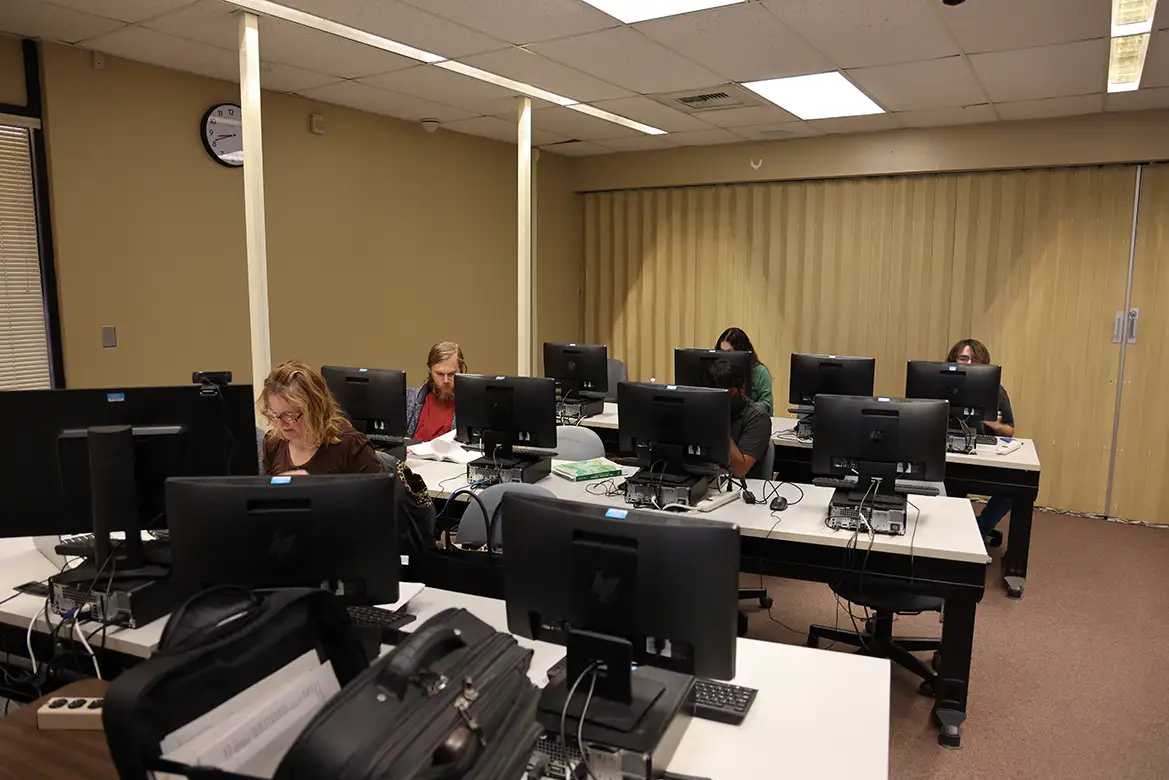What Can You Do With a Computer Programming Degree?
Your Associate in Science in Computer Programming prepares you to begin writing and testing code in many roles:
- Computer programmer
- Software developer
- Software engineer
- Web developer
- App developer
- Computer support specialist
- Computer security specialist
Hands-On Learning
Learn the most in-demand computer programming skills through projects with real-world applications. You develop static and interactive web pages using the basics of HTML, JavaScript, and CSS, building a programming mindset before you move on to other languages like C++. The projects you develop using the different computer languages build the basis of your portfolio. That way, when it comes time to apply for that new job, you’ll already be ahead of the curve.
Get Employer Ready
Developing computer applications isn’t the only thing you’ll do during your program. The current job market can be tricky, especially for computer programmers, and our experienced professors have been there, and they know how to navigate it all. Apart from learning to develop interactive web pages, you’ll learn how to navigate the interview process, common coding tests, and how to develop your skills on the job. You’ll leave knowing you have the employer-ready skills to tackle any interview and test on your way to your new career.
Computer Programming AS: What to Expect
-
Completion Requirements
- 42 units of required courses
- 18 units of restricted electives
- 60 total units
- A grade of C or higher in all required courses
- Minimum grade point average of 2.0
-
Required Courses
Computer Business Applications for Windows (CIS 070A) | 3.00
Microcomputer Support Specialist A+ Training (CS 001) | 3.00
Introduction to Computer Science (CS 073) | 3.00
Visual Basic Programming I (CS 086) | 3.00
Visual Basic Programming II (CS 086A) | 3.00
Assembler Language Programming (CS 087) | 3
C++ Programming I (CS 089) | 3.00
C++ Programming II (CS 089A) | 3.00
Restricted Electives – choose six (6) classes from the following:
ACCT-001, ACCT-002, ACCT-004, BUAC-010, BUAC-066, BUMA-001,
BUMA-010, BUMA-020A, BUMA-027, CIS-030, CIS-050, CIS-062, CIS-063,
CIS-072D, CIS-073C, CIS-074, CIS-076B, CIS-078B, CIS-082E, CIS-082F,
CIS-082G, CIS-082H, CIS-082I, CIS-083E, CIS-086, CS-003, CS-004, Cs-007, CS-080 | 3.00 -
What You Learn
- What goes into software applications and hardware development.
- The history and evolution of computer systems, including legal, moral, and ethical issues.
- Using structured techniques and object-oriented design to build computer applications.
- Solve real-world challenges using industry standard tools.




